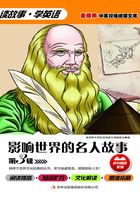
05 Stephen Hawking

There is a man driving around in a motorized wheelchair in Cambridge, England. He can only move his eyes and two fingers on his left hand. He communicates through a computer.He types words on the computer and the computer speaks for him. This man is Stephen Hawking. People know him for his courage and his sense of humor
through a computer.He types words on the computer and the computer speaks for him. This man is Stephen Hawking. People know him for his courage and his sense of humor . He is also the greatest physicist since Albert Einstein.
. He is also the greatest physicist since Albert Einstein.
Stephen Hawking was born in 1942 in Oxford, England. His father was a specialist in tropical diseases.Stephen wanted to be a scientist too. He went to the University of Oxford and received a degree in physics. He then went to the University of Cambridge to study for a Ph.D. During this time doctors discovered that he had ALS, which is sometimes called Lou Gehrig's disease. This fatal
diseases.Stephen wanted to be a scientist too. He went to the University of Oxford and received a degree in physics. He then went to the University of Cambridge to study for a Ph.D. During this time doctors discovered that he had ALS, which is sometimes called Lou Gehrig's disease. This fatal disease weakens all of the body's muscles. Most people with ALS live for five years. The doctors thought Hawking would live for only two and a half more years. When Hawking heard this, he became very depressed.
disease weakens all of the body's muscles. Most people with ALS live for five years. The doctors thought Hawking would live for only two and a half more years. When Hawking heard this, he became very depressed.
At about this time he met Jane Wilde, a language student at Cambridge. They fell in love and got married in 1965. Hawking has often said that his wife gave him the courage to continue to study and work. Although Hawking had become more severely paralyzed, he became a professor at Cambridge. Luckily, the work of a physicist only requires one thing: the mind. Hawking had a son and then a daughter. He had another son 12 years later when his disease had gotten much worse. His youngest son has never heard his father's real voice. He has only heard the voice from the computer.
Hawking does research about how the universe began. He sees connections and works out explanations that other people cannot. His research has influenced many other scientists. Some of his ideas are so advanced that other scientists cannot prove them yet.His most famous ideas are about black holes. Black holes are not really holes. They are areas in space that are very dense.They are so dense
that other scientists cannot prove them yet.His most famous ideas are about black holes. Black holes are not really holes. They are areas in space that are very dense.They are so dense that even light cannot pass through. That is why they are called black holes.
that even light cannot pass through. That is why they are called black holes.
As his disease got worse, money became a problem for Stephen Hawking. He had a lot of medical expenses. He needed special wheelchairs, nurses 24 hours a day, and machines to help him read and speak. To earn extra money, Hawking gave speeches and published articles. Then someone told him to write a book that explained the universe to ordinary people. Hawking agreed and wrote A Brief History of Time. The book sold over 8 million copies worldwide, and Hawking became a millionaire. Even though most people could not understand Hawking's ideas, he amazed them. Hawking became world famous. He met the Queen of England, he was on the covers of magazines, and he appeared on television shows.
In 1990, Hawking ended his 25-year marriage. This was shocking to many of his friends because his wife, Jane, was very devoted to him. She took care of all of his needs. She fed him, bathed him, dressed him, and raised their children by herself. Hawking left her for a younger woman—his nurse! They were married in 1995.
Hawking's strong personality and spirit have helped him to live with ALS for over 30 years. He has helped to make people aware of ALS and other disabilities. Hawking teaches us that even though a person is physically disabled
have helped him to live with ALS for over 30 years. He has helped to make people aware of ALS and other disabilities. Hawking teaches us that even though a person is physically disabled ,the mind has no limits.
,the mind has no limits.